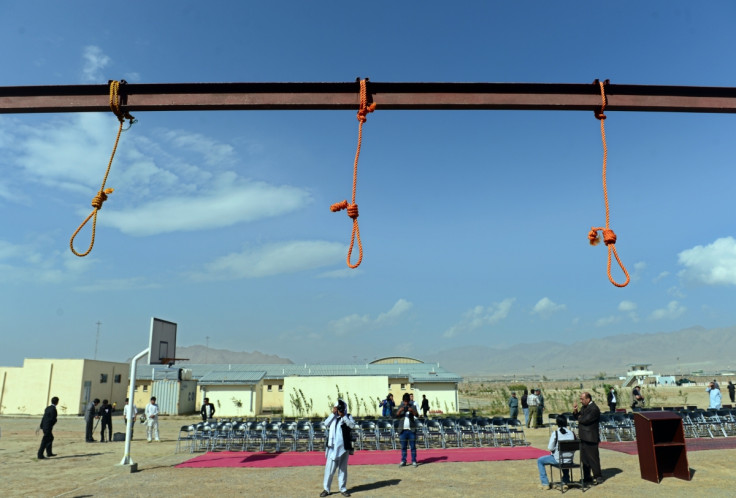Death penalty: Global executions reach 25-year high according to Amnesty report

A dramatic rise in the number of executions around the world saw more people put to death in 2015 than at any point in the last 25 years, a report by Amnesty International has found. Researchers said at least 1,634 people were executed last year, a rise of 54% on 2014 and the highest number Amnesty has recorded since 1989.
The figures – compiled in a 70-page report published on Wednesday (6 April) – reveal the top five executioners in the world were China, Iran, Pakistan, Saudi Arabia and the US. Methods of execution ranged from beheading and hanging to lethal injection and death by firing squad.
Researchers said governments in almost all regions of the world continued to use the death penalty to respond to real or perceived threats to state security and public safety. The death penalty was used in at least seven countries for terrorism-related offences, with some governments making legal changes to expand the scope of the death penalty as a response to terrorism.
Last year also saw people killed for a range of "non-lethal" crimes, such as corruption, adultery, apostasy and "insulting the prophet of Islam". In Iran, most of the 977 people executed were put to death for drug offences.
Amnesty's secretary general, Salil Shetty, said: "The rise in executions last year is profoundly disturbing. Not for the last 25 years have so many people been put to death by states around the world.
"Iran, Pakistan and Saudi Arabia have all put people to death at unprecedented levels, often after grossly unfair trials. This slaughter must end."
Amnesty accused countries of regularly imposing the death penalty in contravention of international law. This included death sentences imposed on under-18s, for offences that don't meet the threshold of the "most serious crimes" and where there were concerns over a fair trial.
Much of the global rise was said to be fuelled by significant increases in the use of the death penalty Iran, Pakistan and Saudi Arabia. The number of executions recorded in Iran and Saudi Arabia increased by 31% and 76% respectively, and executions in Pakistan were the highest Amnesty International has ever recorded in that country.
Globally, the total number of state-sanctioned executions is likely to be higher than reported, as countries where the death penalty remains a state secret do not provide figures. This includes China, which was not included in the report's tally but where "several thousand" people were suspected of being put to death.
Despite what Amnesty called a "profoundly disturbing" surge in governments resorting to the death penalty, the human rights group said there were also some positive developments during 2015. For the first time ever, a majority of the world's countries – 102 – have now fully abolished the penalty.
Four countries completely abolished the death penalty last year – Fiji, Madagascar, Republic of Congo and Suriname – while Mongolia also passed a new criminal code abolishing the death penalty, which will take effect later this year.
In total, 140 countries across the globe are abolitionist in law or practice. Meanwhile, the US carried out 28 executions last year – the lowest number since 1991 – and also passed the lowest number of death sentences since 1977.
© Copyright IBTimes 2025. All rights reserved.






















